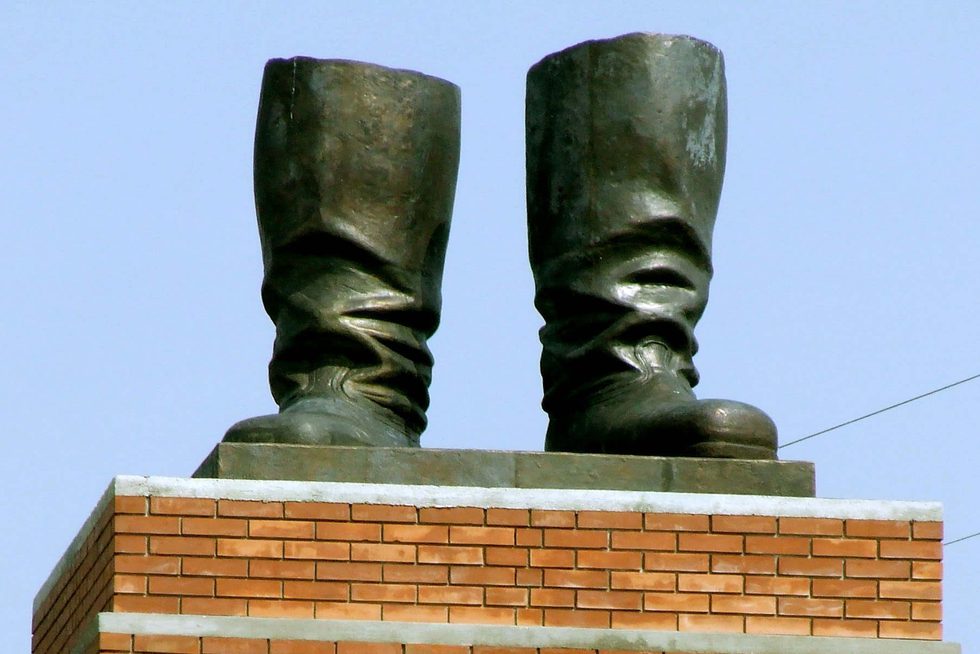Déjà Vu: How Today’s Western Democracies Recall Eastern Europe under Communism
From the Series: Lessons for Liberalism from the “Illiberal East”
From the Series: Lessons for Liberalism from the “Illiberal East”

Journalists, academics, former diplomats, and even cultural giants like Garry Kasparov, Mikhail Baryshnikov, and Martina Navratilova have been delivering up a dire warning for the West: the authoritarian lurch in the United States and other liberal democracies today reminds them powerfully of the Soviet Union during and after communism’s fall. While very few Western pundits and analysts saw the rise of Donald Trump and his counterparts elsewhere coming (and political scientists and pollsters were almost universally wrong in dismissing it), many Eastern Europeans and those with firsthand experience in the region during and after communism were not surprised by Trumpism. They had seen this narrative before.
As a social and political anthropologist in communist Poland in the 1980s who continued working in Central Europe, Russia, and Ukraine in the decades after communism’s collapse, I have watched, with increasing alarm, as the similarities between that region and the United States have mounted. In my most recent books Shadow Elite (Wedel 2009) and Unaccountable (Wedel 2014), I chart a number of parallels between late communism and early postcommunism, on the one hand, and liberal democracies, on the other. In this post I focus on foundational characteristics that typify both yesteryear’s communist societies and the United States and other Western democracies today. Grasping these characteristics is essential to understanding the rise of Trumpism.
A cornerstone characteristic of late communist society is the lack of faith in formal institutions. As I learned in Eastern Europe, societies schooled in communism are accustomed to not trusting the state, replete with institutions that permeate virtually all aspects of life and society from the economy to the media to civic organizations. Official information is a case in point. In The Private Poland (1986, 119–43), I recounted how people systematically discounted official information, notably that conveyed by the state-run news media, which was seldom taken at face value. Instead, Poles constructed their own versions of truth based on word-of-mouth information and shared interpretations of official media accounts.
By contrast, massive distrust of public institutions was generally not the case in the United States and other liberal democracies even twenty years ago, when many people still genuinely believed in civic institutions. Today, they have a lot less confidence in a wide array of institutions—from governments to corporations and banks to the media. In the United States, for instance, a 2017 Gallup poll registered double-digit percentage declines in confidence since the 1970s and 1990s for eleven of seventeen U.S. institutions including banks, churches, Congress, television news, and newspapers. (That same year confidence in institutions showed a slight uptick as compared with 2016, due primarily to Republicans buoyed by Trump’s presidential election victory. But overall levels are still dramatically lower than their historical comparators.)
The problem extends beyond the United States and democracies. Edelman, a firm that measures trust in the institutions of government, business, media, and NGOs, called the situation worldwide an “implosion of trust.” Fully two-thirds of the countries measured were deemed “distrusters,” with less than half of their citizens trusting in mainstream institutions.
A system that’s created by working around obstacles leads people to see themselves as outsiders, even as they participate in and are co-opted into the system they collectively created.
When people don’t have faith in the system, I learned living under communism, they create workarounds to get reliable information, obtain what they need, and maneuver the daily economy and bureaucracy. A system that’s created by working around obstacles leads people to see themselves as outsiders, even as they participate in and are co-opted into the system they collectively created.
This fosters another attitude characteristic of communist society but strikingly present in the United States and some other democracies today: pervasive outsiderism. In 1980s communist Poland, the masses railed against the authorities and identified themselves as at odds with an oppressive system. It became part of the national conversation (among trusted associates) to portray oneself and fellow Poles as opposing the system. Even Communist Party members in important positions would sometimes present themselves as against the regime (Wedel 1986, 179–205).
This calls to mind what is happening today in the United States and beyond, as I reflected nearly thirty years later in Unaccountable. People sense a division between outsiders and insiders and that the insiders are working on their own behalf, even as they purport to have the public in mind. People feel that the system is rigged against them and that they are being left on the outside, trying to get in. Under communism I witnessed a pervasive feeling of helplessness, fatalism, and gallows humor. Soon after its collapse, hopes for a better life were dashed as well-placed elites seized the spoils of privatizing states. The tumult led to further disaffection, widespread substance abuse and, in Russia, an eventual embrace of a nationalist authoritarian, Vladimir Putin.
Today, I am seeing a similar dynamic in the West, which has undergone its own wrenching changes, including privatization, deregulation, financialization, globalization, and digitization. Income inequality has soared, even more so following the 2008 financial crisis.
Such despair and lack of faith in the system generate outsiders en masse. As people identify themselves as outsiders, they look to leaders who claim to do the same, like Donald Trump. But democracy forged in anger and fear can have dangerous and unintended consequences, and illiberal leadership is now establishing itself in the West. Today’s trust deficit is a grave threat to society—and to a flourishing democracy that sustains all of its citizens.
Wedel, Janine. 1986. The Private Poland: An Anthropologist’s Look at Everyday Life. New York: Facts on File.
_____. 2009. Shadow Elite: How the World’s New Power Brokers Undermine Democracy, Government, and the Free Market. New York: Basic Books.
_____. 2014. Unaccountable: How the Establishment Corrupted Our Finances, Freedom, and Politics and Created an Outsider Class. New York: Pegasus Books.